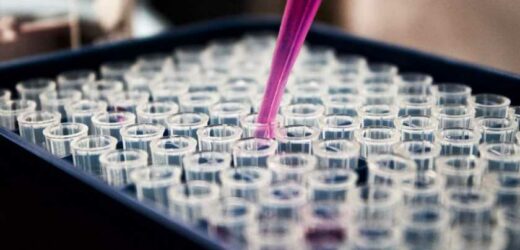Written by Morgan Cormack
For the first time in 20 years, an innovative new treatment for sickle cell disease has been unveiled which is bringing “new hope” to people living with the blood condition.
A “revolutionary” life-changing treatment for sickle cell disease is set to be rolled out to thousands of people in England, the NHS has announced today.
It is the first treatment for sickle cell disease in over 20 years and promises “life-changing benefits,” the head of the NHS has said.
Sickle cell is incurable but affects 15,000 people in the UK, predominantly those from African or African-Caribbean backgrounds. Patients with sickle cell suffer from severe pain during a ‘sickle cell crisis’ which can occur multiple times a year. They’re caused by sickle-shaped red blood cells blocking the small blood vessels. Often requiring hospitalisation, patients are regularly given morphine to manage the pain and prevent organ failure, which can be fatal.
The new drug, crizanlizumab, will be delivered by a transfusion drip. It works by “binding to a protein in the blood cells to prevent the restriction of blood and oxygen supply that lead to a sickle cell crisis.”
In the trial of the new drug, patients taking crizanlizumab experienced a ‘sickle cell crisis’ only 1.6 times a year, compared to usually almost 3 times annually. While the trial was small and only lasted for a year, the news of new treatment has brought the disease as something to the forefront of medical discussions.
The National Institute for Health and Care Excellence (NICE) has said: “Sickle cell disease can be a debilitating condition that has a huge impact on patients’ quality of life. Yet treatment for sickle cell disease has been limited for years, and there has been a lack of treatments for patients whose lives are affected by the condition.”
Being administered through a managed access agreement (MAA), the new drug will initially be given to over 300 patients, increasing to more than 450 in subsequent years.
NICE has stated that:
“Crizanlizumab is an innovative treatment which has shown the potential to improve hundreds of lives, and we are delighted to be able to recommend it as the first new treatment for sickle cell disease in two decades. We don’t yet know whether the benefits will translate in longer-term outcomes, and we look forward to seeing what the data collected through this managed access agreement will uncover about its benefits for the future.”
The news of such innovation has made Sarah-Jane Nkrumah, 27, from London, happy. She says, “I’m over the moon. Firstly because it means that sickle cell is being recognised as it can be a really neglected disorder.”
“I’m happy that many warriors like myself living in the UK can get a chance to live our lives in the way we want, not spending most of our lives in hospital.”
Having had her first sickle cell crisis at just six months old, the founder of Sickle Cell Unite describes how having the condition has impacted her life immensely. “It’s something you’re always aware of because of the constant impact it has – I have known pain all my life.”
She explains: “It’s the most painful thing ever and impacts every little thing. Family life, dating, education – I’ve done many exams in hospital wards. It’s tough.”
“Sickle cell warriors deserve this lifeline”
In terms of treatment options, current courses have been limited to preventing sickle cell crises via a tablet called hydroxycarbamide. Regular blood transfusions are also necessary for a lot of people living with the condition but they’re not always effective for people with a severe form of the disease.
Sarah-Jane explains how her life has steadily revolved around the need for blood transfusions. “I have been on a six-weekly exchange blood transfusion for a few years now. The process includes removing some of my ‘sickle cell blood’ and replacing it with nine to 10 bags of donated blood all from selfless donors.”
The need for Black blood donors is one that has been highlighted in recent years, as there is an increased demand for some rare subtypes which are more common in people of Black heritage.
Sarah explains how these donors are “truly saving my life and are the reason I have made it this far – I’m so grateful. After my transfusion, I usually feel much stronger and have way more energy. It’s not called the bag of life for no reason.”
When speaking about the new treatment, Sarah-Jane is hopeful. “I look forward to seeing all the stories and progress from the news treatment. Sickle cell warriors deserve this lifeline.”
Image credit: Unsplash
Source: Read Full Article




